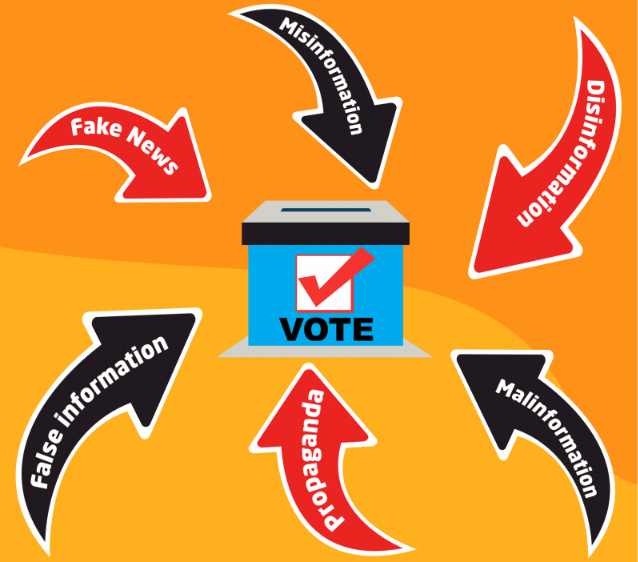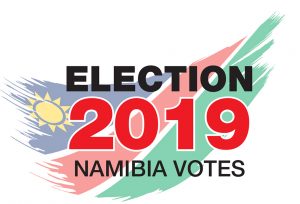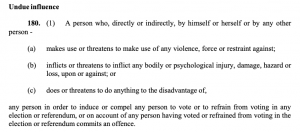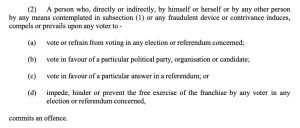As Namibia’s 27 November 2019 Presidential and National Assembly elections draw closer, the spectre of rampant pollution of the electoral landscape is increasingly becoming a concern
How impactful or damaging mis-/disinformation and propaganda – including and especially hate speech and incitements to violence – are on the Namibian political and electoral landscape has become an important consideration as the 2019 elections approach.
It is against this backdrop that political parties and the general public should be reminded of the legal implications of engaging in highly divisive and potentially destabilising mis-/disinformation and propaganda electoral campaigns.
In this regard the Electoral Act of 2014 does not deal explicitly with the issues of mis-/disinformation and propaganda, but does have the following provisions that speak to such practices:
Section 180 (1) states:
And section 180 (2) of the law states in this regard:
In a September 2019 briefing paper on “Fake News and Namibian Elections”, the Institute for Public Policy Research (IPPR), among others, also made the following recommendations:
- Political parties and related actors should refrain from engaging in negative campaigns that involve the production and dissemination of ‘fake news’ – misinformation, disinformation and propaganda – in furtherance of their political objectives. Additionally, they should actively discourage their supporters and associates from producing and sharing such content;
- In order to avoid being accused of/perceived to be spreading ‘fake news’, political parties and related actors should ensure that their statements and pronouncements are factual, accurate and realistic, and their engagements civil, open and transparent;
- All political parties participating in elections should commit, via a signed, binding agreement, to not engaging in information campaigns that amount to creating and spreading ‘fake news’ and other harmful content.
Aside from these local legal mechanisms and recommendations, political parties and actors operating on the Namibian electoral landscape are urged to adhere to the Addis Ababa Declaration, issued on World Press Freedom Day 2019, which was held under the theme “Journalism and Elections in Times of Disinformation”.
The Addis Ababa Declaration calls on governments to not infringe or violate human rights in attempts to deal with pervasive mis-/disinformation and propaganda, but to adopt a measured, responsible and law and rights respecting approach, including the following:
- Remove existing legal obstacles, and avoid adopting broad and vaguely-worded regulatory responses to the problems of disinformation, and repeal measures that fail to respect international standards of legality, legitimate purpose and necessity, or which otherwise risk unduly restricting the right to freedom of expression;
- Invest in Media and Information Literacy among the general public, with a particular focus on the youth, in various ways, including by incorporating these competencies into formal, informal and non-formal education programmes;
- Avoid making, sponsoring, encouraging or further disseminating statements which they know or reasonably should know to be false (disinformation) or which demonstrate a reckless disregard for verifiable information (propaganda),as well as statements that undermine the credibility of journalists and media or label them as enemies, liars or opposition;
- Promote a code of conduct among political actors to avoid the use of disinformation campaigns in electoral processes and the establishment of accountability mechanisms related to the violation of such a code;
- Advocate for ethical and safe spaces for disseminating and receiving verified information and enabling peaceful dialogue to strengthen democracy;
- Promote multistakeholder dialogue with the players of the electoral ecosystem such as electoral authorities, political parties, intermediary platforms, media regulatory authorities, information and data protection authorities, media outlets, journalists, civil society organisations, parliamentarians, among others in order to address disinformation while respecting international commitments on freedom of expression and privacy.
Electoral and government authorities, as well as political parties and the general voting public, are also urged to heed the African Commission on Human and Peoples’ Rights (ACHPR) “Guidelines on Access to Information and Elections in Africa”, as well as the “Joint Declaration on Freedom of Expression and “Fake News”, Disinformation and Propaganda”.




